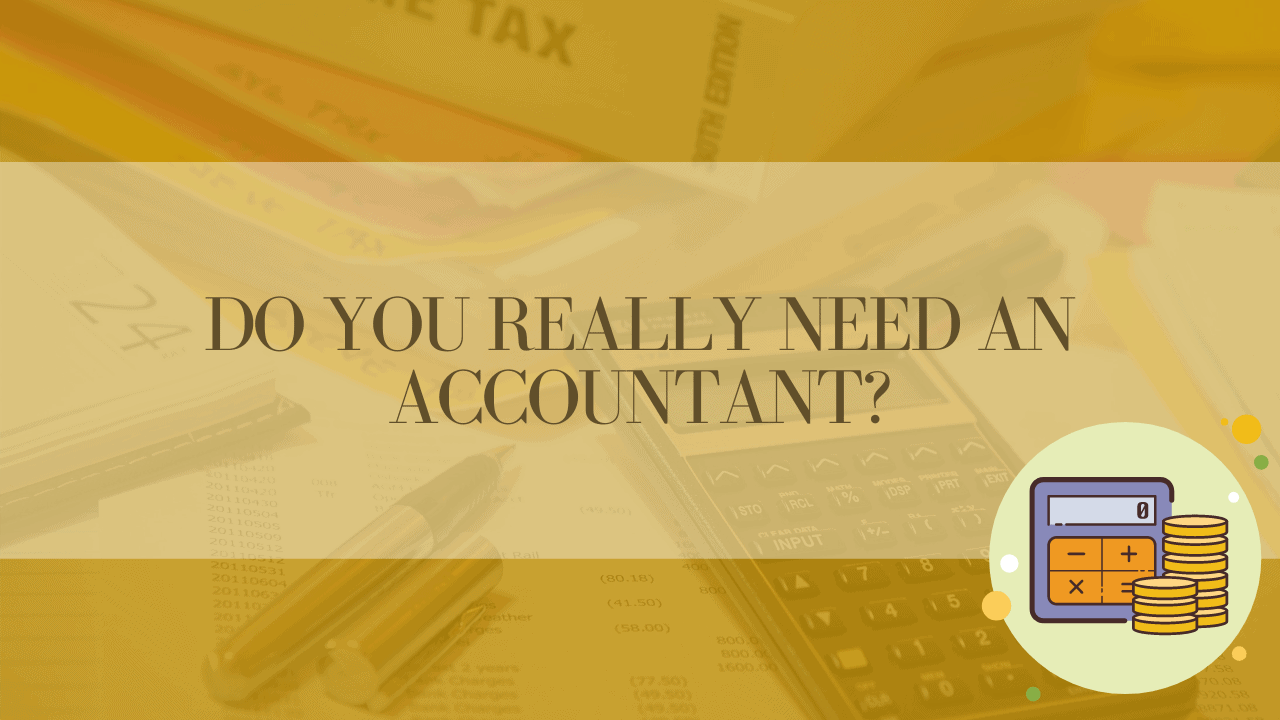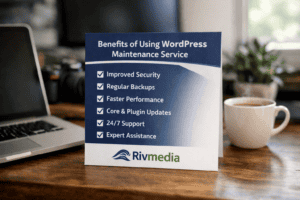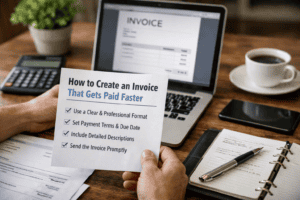Table of Contents
- Challenges For Growing Small Businesses
- You May Need Advice When You Write Your Business Plan
- You May Need Advice About Your Company’s Legal Structure
- You May Need An Accountant To Help With The Company Finances
- Hire An Accountant When You Are ready To Delegate
- You’ll Need An Accountant Incase You Have To Deal With The Government
- Hire An Accountant In Case You’re Audited
- You May Need An accountant When You Apply For Business Loans or Overdrafts
- As Soon An Your Company Starts To Grow, Hire An Accountant
- Before Taking On A Franchise – Get An Accountant’s Advice
- Before You Buy A Business – Get An Accountant’s Advice
- Before You Sell Your Business – Get Advice From An Accountant
- An Accountant Can Help You Every Step of The Way

Challenges For Growing Small Businesses
There are good reasons you should take on an accountant at various stages of your company’s growth. From the business plan to the formation of a corporation, applying for a loan and more – accountants can make your life far easier at every stage.
This doesn’t mean that you always have to hire a full-time accountant or employ one on a retainer basis. Just a few hours of their time is likely to be enough.
Like all small business owners who are trying to save money, you may think you can’t afford an accountant. But take a look at how long it will take you to do certain tasks (such as taxes) and ask yourself, is that reasonable use of your time?
Let’s assume, for example, that it takes you 10 hours to file your taxes, and your time is worth £100 an hour. It’s a £1,000 loss to do your taxes on your own time. And there’s always the risk that you’ve made mistakes – especially if you’re multitasking like most business owners.
However, if you have an accountant to take care of time-consuming things like taxes, it is more possible that they would cost less an hour than you will pay for yourself. You’re not only going to have more time to free yourself up to raise sales, but you’ll have the peace of mind that a professional is taking care of the information.
And what other times in the life of a traditional small business maybe you’d like to hire an accountant to support you?
You May Need Advice When You Write Your Business Plan
If you involve an accountant when drafting your business plan, they would be able to use accounting software to incorporate financial forecasts and other information. This will help you build a business strategy that is practical, competent and more likely to succeed.
Hiring a specialist at this early stage would mean that you will benefit from their financial experience and advice right from the start. This could save you time and money when compared with recruiting one later on.
You May Need Advice About Your Company’s Legal Structure
Not all corporations have the same legal framework – there are different forms that are decided by a variety of factors. Some may be called limited companies, limited liability partnerships or corporations; others may be sole traders or shareholders. They vary from country to country.
You should consider each form carefully before determining which one is better suited to you. For example, you can do business as a sole trader or sole owner, operate on a self-employed basis, and invoice on your own behalf. If that is the case, you will be able to cover some of your living expenses against tax.
However, this also ensures that you will be held legally responsible for any business-related responsibilities. If your business is unable to pay a supplier, defaults on a loan or loses a lawsuit, the creditor may legally come after your home or other property.
In the form of a limited liability corporation, it’s different. As the name suggests, the responsibility of the company is limited to the properties held by the business, not you personally (although there may be exceptions in certain circumstances).
An accountant will clarify the legal business models open to you and help you select the one that best suits you and your company.
You May Need An Accountant To Help With The Company Finances
Small business accounting can become complicated quickly if you do it on your own. If you feel like you’re losing control of who owes you money and how much, an accountant will help you get back on track.
You will also want to calculate key business indicators, such as the ratio of wages and other employee payments to overall sales. An accountant can assist with this by monitoring the payroll and generating graphs so that you can see how the ratio varies over time.
If your accountant uses cloud-based accounting software, they would be able to share your company reports with you instantly and easily. And they will generate tables and charts that will help you understand the current financial position of your business at a glance. This will help you control your company performance and keep track of important issues like cash flow as to better manage the company’s spending.
Hire An Accountant When You Are ready To Delegate
There’s no question that one of the things you enjoy most as a small business owner, is that you’ll have more leverage. You can set your own working hours, establish your business plan, manage your workload (at least to some extent) and decide your own finances. And being the master of all these things is a wonderful and empowering experience.
But occasionally it can stop you from delegating. Business owners may feel overworked, partially because they are reluctant to allow other people to help out. You can feel like no one can know your business as well as you do, so no one can handle any aspect of your business as well as you can.
Inability to delegate can mean that you feel overworked and overwhelmed. At some point, you’re going to have to let go and learn to trust other people to manage parts of your company so that you can take care of the rest.
Delegating the financial affairs of your company is a positive start. You need to find the right accountant and make sure that you trust your company’s financial records. If you’ve turned over your company’s finances to someone more seasoned in accounting than you are, you’ll have more time to reflect on other aspects of your business.
Some of the most popular company owners in the world are specialists in delegating work to the right people – so strive to learn from those people and use the knowledge that they have gained.
You’ll Need An Accountant Incase You Have To Deal With The Government
It can be overwhelming to deal with government paperwork when you run your own business. That’s why so many small business owners employ an accountant before the first tax filing is due.
But they can help you deal with more than just tax returns, too. They can help the business communicate with the government in different ways.
A decent accountant will be able to:
- Complete and request the necessary legal and compliance documents for your company
- Keep the business up to date with the new tax regulations.
- Prepare annual accounting statements.
- Keep the status of your company updated on the list of government companies.
- Keep lists of directors and other administrative workers.
- Organise and document the share/stock allocation, such as when a company is established and when a business partner or one of the other directors leaves or when a new partner joins the company.
- Manage the payroll and ensure that all employee tax codes and expenses are reported correctly.
Preparing your tax documents correctly will save you money – may be more money than your accountant would charge you. And a successful accountant would use his knowledge of tax laws and regulations to recommend ways to free up cash flow, save money, and collect capital for growth.
Hire An Accountant In Case You’re Audited
It is statistically doubtful that the company will be audited since there are so many small companies and very few government auditors. Nevertheless, if it happens to you, it can be costly, frustrating and time-consuming.
If you don’t have an accountant at this stage, it’s a good time to recruit one. They’ll give you advice on how to work in the audit process. This will also help ensure that you do not break any tax rules afterwards – because the government will almost definitely be watching.
But it’s best to hire an accountant before an audit occurs, particularly if you can find someone who’s going to provide audit insurance. Audit insurance covers the costs that you would have had to pay if your company were to respond to an official enquiry, inspection, inquiry or audit by a tax department. An accountant providing audit insurance ensures that they will not charge any extra for the substantial amount of extra work they will have to do during the audit process.
Good accounting software provides an audit trail. This makes it simpler for you and the government to see precisely what transactions have taken place over time – and who has approved those transactions.
You May Need An accountant When You Apply For Business Loans or Overdrafts
Banks want to know they’re going to get the money they’re lending back. After the credit crunch, lending to small companies declined in most countries around the world, not just the UK. This makes it extremely important for you to have a compelling business case when applying for a loan or an overdraft.
An accountant will assist in improving your chances of getting finance. Just the fact that you’ve got an accountant could significantly influence the bank on your behalf. Having an accountant implies that you are serious about your business, and banks and lenders see this as a good sign. With good accounting software, the accountant will include statistics and figures to back up your applications for funding. They’ll also be able to answer any difficult questions your bank may have about sales forecasts and expenses.
Your accountant will also help you select which loans to take and tell you if your bank’s terms and conditions, as well as interest rates, will be beneficial to you and your company.
As Soon An Your Company Starts To Grow, Hire An Accountant
Businesses don’t always develop at a steady rate. A new client or a large project can mean that you need to expand your company faster than expected.
An accountant will help you navigate growth transitions, such as recruiting staff or taking up more office space. They will take care of the particulars (payroll, employee tax administration, utility payments, property tax and so on, which leaves you free to look at a broader picture of how your company is expanding.
Accountants may also use accounting software to evaluate the cash flow, stock management and pricing. They will also provide insight into how the company will expand properly through financial analysis. They might also help decide when the best time is for you to add a new product or service to your portfolio.
Before Taking On A Franchise – Get An Accountant’s Advice
Franchising is a common way to start up in business, particularly in areas such as auto detailing, cosmetics supplies, lawn mowing, courier delivery and fast-food restaurants. With a franchise, you will always be your own boss, but in exchange for a share of revenue or business equity, a franchise corporation can help you with brand promotion, distribution, product supply and other important issues.
This could take some of the risks of starting a new company. On the downside, though, you will have less economic flexibility and higher overheads, since some of your profits will go to the parent company. Franchise contracts vary, so the price you pay and keep varies.
It can be extremely difficult for someone new to run a company to know if it’s worth taking on a specific franchise. This is where the accountant can help. They will look at the franchise contract and figure out the fees and percentages paid, and then help you determine your expected profits after the expense has been deducted.
Only you can determine whether or not you want to take over the franchise. But, armed with thorough financial expertise, you will make the decision more confidently.
Before You Buy A Business – Get An Accountant’s Advice
Some people start their new company from scratch; others tend to buy one that is already up and running. Before buying an established company, you should always consult an accountant. They’ll be able to look at the company’s finances in-depth and figure out if something is wrong.
For example, they may check if the assets of the company (such as equipment) are wholly owned or leased or part-paid and whether the company has any outstanding debt.
It’s a good idea to find a lawyer as well. Working together, the accountant and lawyer can learn what you need to know about the business you plan to purchase and operate. That’ll give you peace of mind that you are having what you paid for each month.
Before You Sell Your Business – Get Advice From An Accountant
It is doubtful that you would have run your company for years without the services of an accountant. But if you’ve not got one, you should seriously consider recruiting one before you sell it.
An accountant can place the company’s financial reports in order and make statements of accounts that you can give to prospective purchasers. Using high-quality accounting software, you can create valuable charts and tables to display your business in a positive light. They can also speak to prospective buyers’ accountants during the due diligence period, which is also a legal necessity when a company is taken over.
And, perhaps most importantly, an accountant will help you arrange your financial affairs in such a way that you get the most revenue from selling your business. Depending on how the transaction is arranged, the amount of money you get after tax can vary considerably. EG A lump sum can be less tax-efficient than a monthly payment over a period of several years.
Each company sale is different, and a good accountant can help you get the best result while you’re selling.
An Accountant Can Help You Every Step of The Way
As you can see, accountants can support you in every stage of your company’s growth. This doesn’t mean that you have to hire one, but the right accountant can make things easier for you, enabling you to focus on what you love to do.
Your expertise is going to run your company. Leave the financial reports to the accountant. If you and your accountant are using cloud-based accounting software, you will be able to keep track of what your accountant is doing, and you will still be able to see the company’s financial condition at a glance.
We hope you enjoyed this post and if you have anything to add to this, then please drop it in a comment below, we’d love to hear your opinion, tip or advice for fellow business owners. If you’re an accountant and you can offer small and medium-sized business owners advice on accounting then get in touch, we’d love to feature you in one of our posts.














